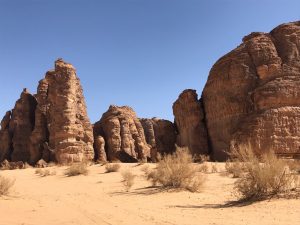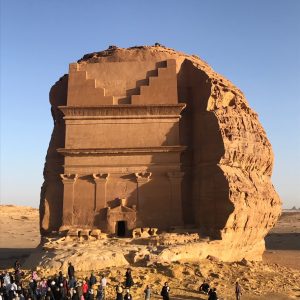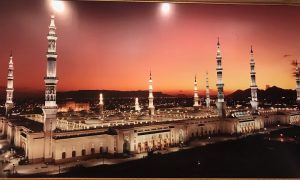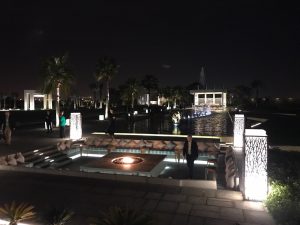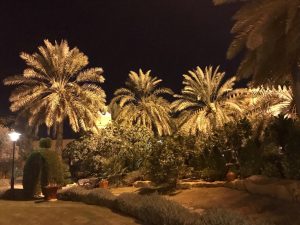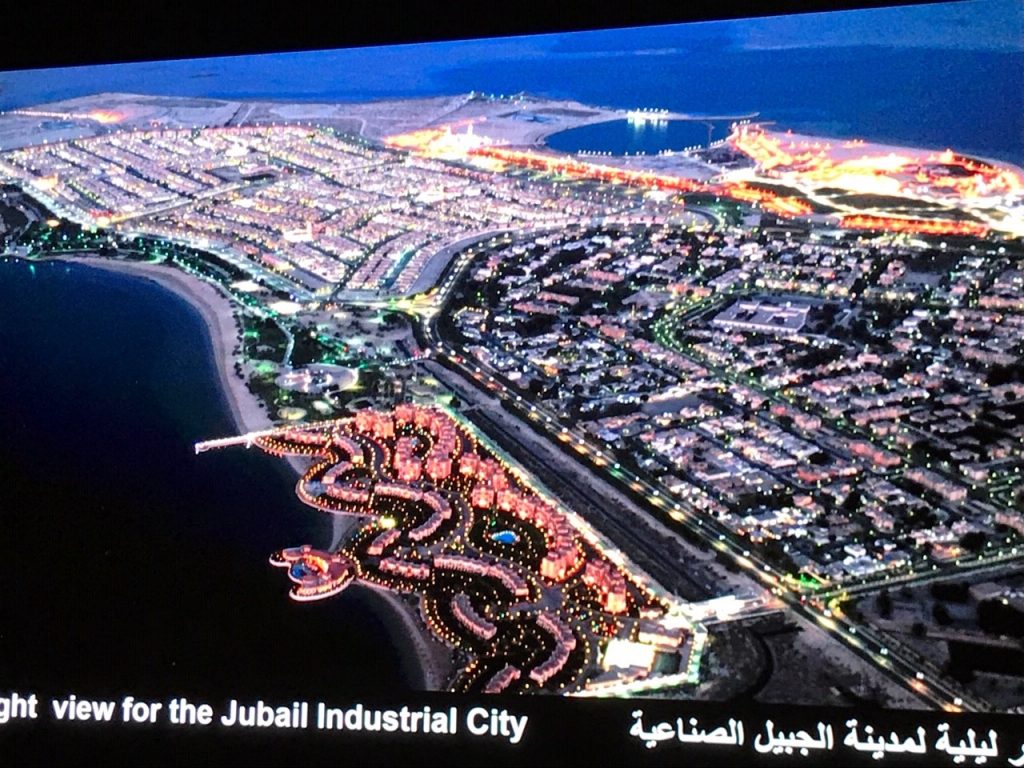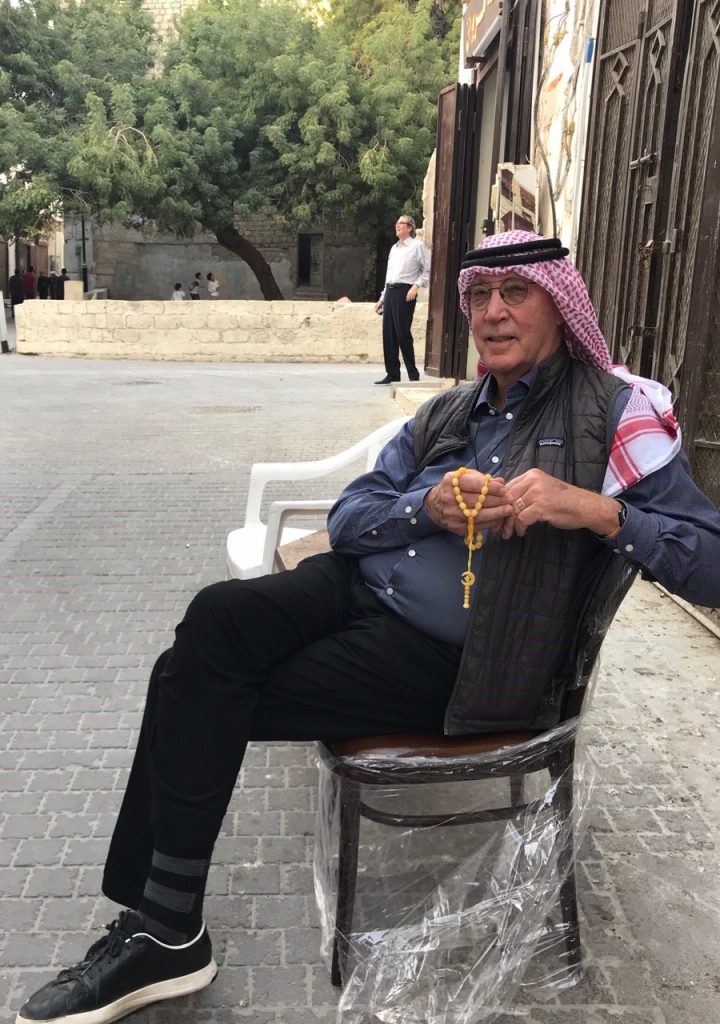Saudi Arabia – Faust Revisited
The narrative of Saudi Arabia can be written in superlatives or a harsh critique but the most appropriate approach is metaphor. The epic story of Faust as told by Goethe offers a framework which helps to explain the enigma that is Saudi Arabia.
The brilliant Dr. Faust is offered a wager with Mephistopheles aka the devil. Mephistopheles offers intoxicating experiences on earth beyond what the brilliant doctor can accomplish on his own and if “M” can deliver Faust will agree to spend eternity in hell. We remember the essence of the Faustian story as “a bargain with the devil”.
The essence of Saudi Arabia is composed of two such transactions. Political Legitimacy in exchange for submission to a rigid Theology and secondly Regime Security for access to Oil.
The first bargain is submission to a repressive and conservative theology in exchange for power. This refers to the oft-mentioned arrangement between the House of Saud and the conservative strain of Islam known as Whahabism. The itinerant and unsuccessful cleric Abd al-Whahab in 1744 encountered the leader of a marginal desert tribe ruled by Muhammad ibn Saud located near what is today Riyadh. Al Saud endorsed the teaching of the cleric and in return was able to amass the temporal power to enlarge his kingdom. The bargain was that the Whahabi clerics had full control over religious life, practice and interpretation. In return the House of Saud would be supported, protected and could retain power and run all temporal affairs.
That bargain remains in place today and the challenge of the crown prince we know as MBS is to end that fateful alliance or at least shift the balance in favor of the secular and temporal.
The oversimplified description of Whahabi teaching is a fundamentalism regarding theology or a strict interpretation of the Koran in its original tone and text with no room for adjustment to a changing society or world. This includes the strict implementation of sharia law.
A second relevant difference was rejection of what had become common practice to commemorate important imams and the locations and shrines associated with them. This was especially a Shia practice and the destruction of shrines and critique of practice by the Whahabis sharpened the divisions between the Sunni and Shia strains in Islam. This adds to the other contemporary competitive factors at play between Saudi Arabia and Shia Iran, minorities such as the Houthis in Yemen and other Shia concentrations in Iraq, Syria or militant groups such as Hezbollah in Lebanon.
- Desert and rock have shaped the character of Saudi Arabia.
- The other Petra in Saudi Arabia – put on your future bucket list.
Saudi Arabia has flirted with modernity on several occasions but when the supremacy of the House of Saud was at risk the response was always to retreat into the Whahabi theological tent. The takeover of the holy center of Mecca by theologically conservative insurgents in 1979 contemporaneously with the religious revolution in Iran (and not that distant in time from the Israel War and oil embargoes earlier in the decade) resulted in a full Saudi retreat in 1979 from the modern world. Our generation has only experienced Saudi Arabia as a place of great wealth but living in a dark age relative to our understanding of human liberty and tolerance.
If Saudi Arabia had simply closed its border and kept that darkness to itself we may not have noticed or cared. However, the wealth resulting from oil allowed the “bargain” to express itself in a new, different and toxic way. The vast army of Princes and their acolytes could experience a more private freedom in their Saudi palaces and a less private freedom in the international palaces of Gucci or Harrods and often in the palaces of hedonism in places such as Bangkok.
The new bargain was to overlook this private excess and use the oil wealth to impose the Whahabi teaching on other vulnerable audiences throughout the Muslim world. Most Muslim populations, as a consequence, have become more conservative and extreme expressions manifest themselves with names such as ISIS, Taliban, Al Queda or Hamas. Thoughtful Saudis realize that they have injected a virus into the Muslim world and beyond and even if there is change inside the Kingdom this will not cure the infection.
MBS has announced his intention to bring the Saudi Kingdom into the modern world at least as regards to behaviour such as access to some modern social activities and a greater role and freedom for women. There has not been any parallel announcement regarding freedom of belief or genuine participation by society in their own governance. There remains a chasm of misunderstanding regarding the wholeness of modern society. Activists remain in prison, some extremist clerics are silenced, wars such as Yemen are started by personal fiat, neighbors such as Qatar and Lebanon are bullied and diplomatic tools (think Canada) are excessively blunt.
- Beautiful private beach homes of our hosts.
The emerging generation of frequently Western-educated Saudis do not want to believe that MBS is capable of orchestrating recent public relations disasters. They hope with a sense of desperation that he survives the palace knives long enough to make changes permanent. Many of us join them in that wish and add the suggestion that he enroll in a few civic lessons.
The second bargain is oil for security (which means the continued reign of the House of Saud). The collapse of the Ottoman Empire in WWI created space for regional ambitions. The House of Saud exploited this opportunity and extended its control until in bumped into other hegemons like the British and French to the north.
The British Empire was still alive and well and the US was emerging as a global power. The British were dominant in Iran so the Saudis struck a bargain with America. In 1933 an agreement was signed with the Standard Oil Company of California (Chevron) to explore for oil. The search was rewarded with success in 1938 and Saudi Arabia has since emerged with the largest and lowest cost oil reserves in the world. America was given preference in terms of access to oil and investment and in return provides an insurance policy to the House of Saud in terms of protection from external threats.
The Saudi part of the deal is quite clear. The American part of the bargain is more problematic. The financing of thousands of conservative madrasas in poor and vulnerable Muslim nations has retarded the development of inclusive societies, diminished the role of women and arguably is a principal cause of retarded political development in the Islamic world. This matters in several important ways.
The absence of moderate and modernizing regional Governments has complicated the integration of Israel into the region – and some self-inflicted Israeli policies add to the problem. Of greater significance has been the increase of tension within and between the post-Ottoman societies and the region more generally – instigated by the promotion of narrow and divisive views of Islam. This has prevented any sense of regional unity and frequently promotes internal and regional strife.
The Saudi-American Faustian bargain becomes a significantly complicating factor when the US as the critical global actor has been unable to be perceived or act as a player with a reasonably balanced and constructive regional set of interests and policies. Add what can be described as a second Faustian bargain between the US and Israel and the series of disasters can be understood. Afghanistan, Iraq, Syria, Libya, Bosnia, North Caucasus, Gaza and more all have their roots in these policies but external players cannot be held entirely responsible for the chaos in the Islamic world.
Whahabi influence has been distinctly unhelpful but initiatives to start an Islamic Reformation or Renaissance have started fitfully in places such as Egypt and Constantinople and then collapsed. The number of non-technical books published in the entire Islamic world would not fill a private library. After the disasters of 9-11, Paris and a few others there are signs that Muslins in the West are starting to own the problem and propose solutions.
The containment of Whahabi influence is a good starting point. However, it would be helpful if global players such as the US, Russia, Europe, China and even Israel began recognizing and rewarding initiatives that represent the merging of Islam and a new Enlightenment. A modernizing Saudi Arabia is a helpful start but only part of the solution.
There is enough material in the Middle East to keep a future Goethe or Wagner busy for a lifetime.


